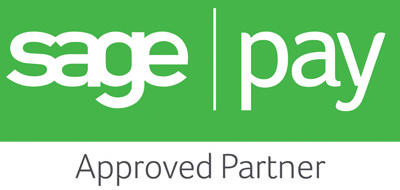Google Bucks the Trend - Part 1
Privacy on the internet is a concern for everyone, whether you're using the web as a consumer, as an advertiser or content publisher. The new GDPR rules that came into force three years ago caused a massive shake-up in the way that websites were able to track activity and to provide targeted advertising. At first, the public response was positive, but whether it actually translated into meaningful behaviour change is doubtful; many people, looking for information, will simply click “accept all” to avoid the interruption to their journey. We still hear a familiar cry of “how does Google/Facebook/etc. know I've been looking at that?!”, and it's largely because people haven't changed their browsing behaviour.
Google is now launching a third-party cookie blocker at the browser level, stopping individual tracking of users across the web when they browse on Chrome. Over 64% of people use Chrome as their primary browser over all platforms, so this news is significant for advertisers as they will be missing out on a huge chunk of data that's used to deliver highly personal and relevant advertising.It's no secret that the more highly targeted the advertising, the more effective it is, so advertisers will have to work much harder to create messages that will work without such deep insight into the individuals that they're trying to reach.
Google calls this the Federated Learning of Cohorts (FLoC), which essentially means that instead of access to user data at the individual level, advertisers can now only target at broader demographics without knowing where each person is in their research/purchase cycle, or the other factors that influence users, such as specific geographic location or what else they are interested in. We can think of this as similar to an exploded Venn diagram where there are no overlaps between groups; instead each cohort stands alone.
Apple is following suit by tightening the scope for user tracking by forcing a very solid opt-in across their apps.If users don't opt in, they may not be able to use the app. This means advertising on Apple-owned platforms and apps can still be highly targeted, but this relies on people making a very informed and conscious decision to allow access to their personal data. A study by Pew Research Center revealed that over 72% of users feel that everything they do online is tracked, and 81% are concerned about the risks of exposing their personal data in exchange for targeted advertising. This insight shows it's unlikely that users will continue to be so blasé about accepting tracking cookies even on browsers that don't automatically block them.
As usual, it's the two big players that are leading the way and the rest of us have to adapt.Improving privacy online is certainly a laudable aim, but it could have far-reaching consequences for many companies who rely on third-party cookie data to target their marketing messages. Marketers will have to respond to these changes and realign their strategies to make the most of the other channels they use while learning how to target online advertising effectively without having the insight into user behaviour they are used to.
Join us for part 2 where we look at how brands are overcoming this new challenge.
